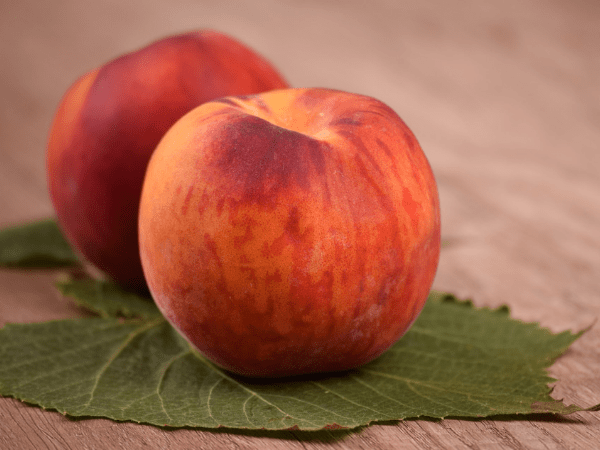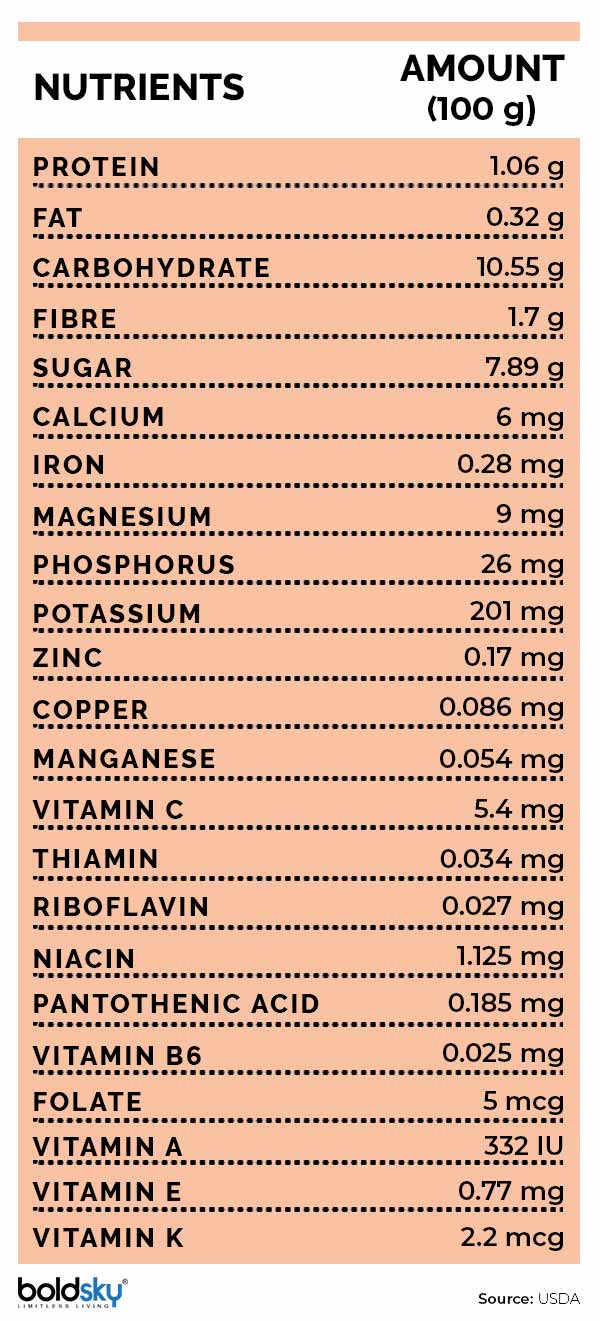Just In
- 2 hrs ago

- 3 hrs ago

- 7 hrs ago

- 8 hrs ago

Don't Miss
- Movies
 Nargis Fakhri Is True Water Baby & These HOT Pics Are Proof! Clamming, Jet Skiing Are Her FAV
Nargis Fakhri Is True Water Baby & These HOT Pics Are Proof! Clamming, Jet Skiing Are Her FAV - Sports
 On This Day in IPL: CSK Played their First Match at Chepauk, Dhoni scored first 20th Over Six
On This Day in IPL: CSK Played their First Match at Chepauk, Dhoni scored first 20th Over Six - Finance
 Rs 2.20/Share Dividend Declared: 84-Yrs Old Small Cap Tata Co Reports 7.7% Rise In Net
Rs 2.20/Share Dividend Declared: 84-Yrs Old Small Cap Tata Co Reports 7.7% Rise In Net - News
 Goa's Railway Renaissance: BJP's Vision Transforms Connectivity
Goa's Railway Renaissance: BJP's Vision Transforms Connectivity - Education
 Meet Naima Khatoon, First Vice Chancellor of AMU, Know Her Background and Education Qualification
Meet Naima Khatoon, First Vice Chancellor of AMU, Know Her Background and Education Qualification - Technology
 Xiaomi Robot Vacuum Cleaner S10, Handheld Garment Steamer, and Redmi Buds 5A Launched in India
Xiaomi Robot Vacuum Cleaner S10, Handheld Garment Steamer, and Redmi Buds 5A Launched in India - Automobiles
 Nissan Magnite Achieves 1 Lakh Unit Sales Milestone: Consistency Helps
Nissan Magnite Achieves 1 Lakh Unit Sales Milestone: Consistency Helps - Travel
Kurnool's Hidden Gems: A Guide To Exploring India's Lesser-Known Treasures
10 Surprising Health Benefits Of Nectarines
Nectarine (Prunus persica) is a fruit that belongs to the Rosaceae family. The fruit resembles peach fruit, but one can spot the difference between the two through their skin and flavour. Nectarines possess innumerable health benefits which we are going to discuss in the article.
Nectarines are packed full of nutrients and antioxidants [1] and they are of two types - freestone and clingstone. The freestone nectarines have pits that can be easily removed and they are easier to eat. The clingstone nectarines have pits that are harder to remove and are mostly used in cooking and canning.

Nectarines are nutrient-dense and low-calorie fruits which come in a variety of colours such as white, yellow, pink and red.
Nutritional Value Of Nectarines
100 g of nectarines contain 87.59 g water, 44 kcal energy and they also contain
- 1.06 g protein
- 0.32 g fat
- 10.55 g carbohydrate
- 1.7 g fibre
- 7.89 g sugar
- 6 mg calcium
- 0.28 mg iron
- 9 mg magnesium
- 26 mg phosphorus
- 201 mg potassium
- 0.17 mg zinc
- 0.086 mg copper
- 0.054 mg manganese
- 5.4 mg vitamin C
- 0.034 mg thiamine
- 0.027 mg riboflavin
- 1.125 mg niacin
- 0.185 mg pantothenic acid
- 0.025 mg vitamin B6
- 5 mcg folate
- 332 IU vitamin A
- 0.77 mg vitamin E
- 2.2 mcg vitamin K

Health Benefits Of Nectarines
1. Help in weight loss
Nectarines are rich in fibre and low in calories which make them an excellent fruit for losing weight. An increase fibre intake helps you to stay fuller for longer which in turn aids in reducing appetite and curb cravings, thus promoting weight loss [2] .
2. Prevent cancer
Nectarines have the potent ability to kill cancer cells. According to a study published in the journal Food Chemistry, the polyphenols in nectarines inhibit the growth of breast cancer cells without affecting the healthy cells [3] .
Another study published in the American Journal of Epidemiology, found that nectarines can lower the risk of lung cancer in men [4] .

3. Promote heart health
The fibre content in nectarines has been shown to decrease bad cholesterol, a risk factor of heart disease [5] . In addition, a higher intake of polyphenols found in fruits like nectarines has been linked to lower levels of triglycerides and increased levels of good cholesterol [6] .
Also, nectarines are a good source of potassium, an important mineral that helps reduce blood pressure which is known to cause stroke and heart disease.

4. Improve blood sugar levels
Due to their high fibre content, nectarines can help regulate blood sugar levels. Fibre aids in slow absorption of sugar in the bloodstream and prevents a spike in blood sugar, thus reducing the risk of diabetes [7] .
5. Encourage better digestion
As nectarines are a good source of fibre, consuming them will help support digestive health. It acts as a prebiotic by providing food to the healthy gut bacteria in the stomach, which further aids in better digestion and nutrient absorption [8] .

6. Boost immunity
The vitamin C content in nectarines helps in boosting the immune system and ward off infections [9] . In addition, these fruits are rich in antioxidants which may also protect the immune cells from damage and keep the immune system working in proper condition [10] .
7. Enhance eye health
Nectarines are an excellent source of vitamin A, an important nutrient that is required for normal vision. According to a study, nectarines contain carotenoids like lutein and zeaxanthin, which are known to play a major role in preventing eye disease [11] .
8. Reduce neural tube defect risk
The presence of folate in nectarines can help in reducing the risk of neural tube defect. It is a group of serious birth defects that affect a baby's brain, skull and spinal cord. Consuming nectarines during pregnancy will help contribute to the overall health of the mother and baby [12] .

9. Prevent anaemia
Consumption of nectarines can help prevent the risk of anaemia. It is because these fruits contain iron, which is required by the body to produce haemoglobin to help produce more red blood cells. Less red blood cells contribute to a higher risk of anaemia [13] .
10. Promote skin health
Nectarines are packed with beneficial antioxidants such as vitamin C and vitamin A which can fight against free radicals that cause oxidative stress leading to skin ageing, wrinkles, acne, dark spots and so on. These antioxidants help in healthy cell production, protects the skin from infections and smoothens wrinkles, to name a few.
Difference Between Nectarines And Peaches [14]
Nectarines and peaches belong to the Rosaceae family and they have minimal differences in appearance, taste and nutrition. The only difference between a nectarine and peach is their skin and flavour.
Peaches have fuzzy skin with delicate flesh on the inside, while nectarines have thin, smooth skin with slightly firmer flesh.
Side Effects Of Nectarines
In some people, nectarines can cause mild allergies like swelling in the mouth and throat, stomach pain, running nose and diarrhoea. The pits of nectarines contain cyanide, which upon consumption may result in cyanide poisoning.
Recipe Of Nectarine Salsa [15]
Ingredients:
- 4 nectarines pitted and diced
- 1 small diced onion
- 2 jalapeno diced peppers
- ½ bunch chopped cilantro
- Juice of 2 limes
- 1 tbsp olive oil
- 1 tsp salt
- ¼ tsp cayenne pepper
- ¼ tsp pepper
Method:
- In a bowl, add all the ingredients and toss them well.
- Cover the bowl with a foil and refrigerate for 20-30 minutes to allow the flavours to blend.
- [1] Abidi, W., Jiménez, S., Moreno, M. Á., & Gogorcena, Y. (2011). Evaluation of antioxidant compounds and total sugar content in a nectarine [Prunus persica (L.) Batsch] progeny.International journal of molecular sciences,12(10), 6919–6935.
- [2] Sartorelli, D. S., Franco, L. J., & Cardoso, M. A. (2008). High intake of fruits and vegetables predicts weight loss in Brazilian overweight adults.Nutrition Research,28(4), 233-238.
- [3] Vizzotto, M., Porter, W., Byrne, D., & Cisneros-Zevallos, L. (2014). Polyphenols of selected peach and plum genotypes reduce cell viability and inhibit proliferation of breast cancer cells while not affecting normal cells.Food chemistry,164, 363-370.
- [4] Wright, M. E., Park, Y., Subar, A. F., Freedman, N. D., Albanes, D., Hollenbeck, A., … Schatzkin, A. (2008). Intakes of fruit, vegetables, and specific botanical groups in relation to lung cancer risk in the NIH-AARP Diet and Health Study.American journal of epidemiology,168(9), 1024–1034.
- [5] Brown, L., Rosner, B., Willett, W. W., & Sacks, F. M. (1999). Cholesterol-lowering effects of dietary fiber: a meta-analysis.The American journal of clinical nutrition,69(1), 30-42.
- [6] Li, G., Zhu, Y., Zhang, Y., Lang, J., Chen, Y., & Ling, W. (2013). Estimated daily flavonoid and stilbene intake from fruits, vegetables, and nuts and associations with lipid profiles in Chinese adults.Journal of the Academy of Nutrition and Dietetics,113(6), 786-794.
- [7] Aller, R., de Luis, D. A., Izaola, O., La Calle, F., del Olmo, L., Fernandez, L., ... & Hernandez, J. G. (2004). Effect of soluble fiber intake in lipid and glucose leves in healthy subjects: a randomized clinical trial.Diabetes Research and Clinical Practice,65(1), 7-11.
- [8] Slavin J. (2013). Fiber and prebiotics: mechanisms and health benefits.Nutrients,5(4), 1417–1435.
- [9] Hemilä, H., & Chalker, E. (2013). Vitamin C for preventing and treating the common cold.Cochrane database of systematic reviews, (1).
- [10] Hughes, D. A. (1999). Effects of dietary antioxidants on the immune function of middle-aged adults.Proceedings of the Nutrition Society,58(1), 79-84.
- [11] Mozaffarieh, M., Sacu, S., & Wedrich, A. (2003). The role of the carotenoids, lutein and zeaxanthin, in protecting against age-related macular degeneration: a review based on controversial evidence.Nutrition journal,2, 20.
- [12] Laurence, K. M., James, N., Miller, M. H., Tennant, G. B., & Campbell, H. (1981). Double-blind randomised controlled trial of folate treatment before conception to prevent recurrence of neural-tube defects.Br Med J (Clin Res Ed),282(6275), 1509-1511.
- [13] Miller J. L. (2013). Iron deficiency anemia: a common and curable disease.Cold Spring Harbor perspectives in medicine,3(7), 10.1101/cshperspect.a011866 a011866.
- [14] Li, S. H., Génard, M., Bussi, C., Lescourret, F., Laurent, R., Besset, J., & Habib, R. (2002). Preliminary study on transpiration of peaches and nectarines.Gartenbauwissenschaft,67(1), 39-43.
- [15] https://www.onionringsandthings.com/nectarine-salsa/
-
 healthDo You Keep A Clove Of Garlic Under Pillow? Not To Keep Vampires At Bay, There May Be Scientific Reasons
healthDo You Keep A Clove Of Garlic Under Pillow? Not To Keep Vampires At Bay, There May Be Scientific Reasons -
 healthGet Your Groove On: 5 Health Benefits Of Dancing To Afro Beats
healthGet Your Groove On: 5 Health Benefits Of Dancing To Afro Beats -
 healthIndigenous Delicacies: 5 Rare Indian Wild Foods That Are So Healthy You Should Try It!
healthIndigenous Delicacies: 5 Rare Indian Wild Foods That Are So Healthy You Should Try It! -
 healthHaving Chicken Soup At Home Can Cure These Health Issues
healthHaving Chicken Soup At Home Can Cure These Health Issues -
 healthBoost Your Health with Beetroot: Health Benefits And Ways To Add The Colourful Veggie In Your Diet
healthBoost Your Health with Beetroot: Health Benefits And Ways To Add The Colourful Veggie In Your Diet -
 healthHealth Benefits Of Garam Masala: From Digestion To Weight Loss, Proper Use Can Yield Many Benefits
healthHealth Benefits Of Garam Masala: From Digestion To Weight Loss, Proper Use Can Yield Many Benefits -
 healthAyurvedic Wisdom: Panchamrit's Surprising Health Benefits
healthAyurvedic Wisdom: Panchamrit's Surprising Health Benefits -
 healthUnveiling the Power of Turmeric Ghee: An Ancient Ayurvedic Secret!
healthUnveiling the Power of Turmeric Ghee: An Ancient Ayurvedic Secret! -
 healthPlant-Based Diet And Nutrition: Your Key To A Stronger Immune System!
healthPlant-Based Diet And Nutrition: Your Key To A Stronger Immune System! -
 healthExperience the Healing Power of Indian Herbal Teas!
healthExperience the Healing Power of Indian Herbal Teas! -
 healthInternational Cat Day 2023: Did You Know That Cat Purring Can Benefit Your Health? Check Out How!
healthInternational Cat Day 2023: Did You Know That Cat Purring Can Benefit Your Health? Check Out How! -
 healthHeart-Healthy Breakfast: Discover The Benefits Of Frozen Strawberries
healthHeart-Healthy Breakfast: Discover The Benefits Of Frozen Strawberries


 Click it and Unblock the Notifications
Click it and Unblock the Notifications



